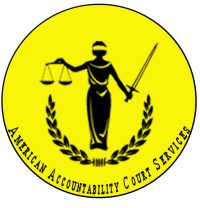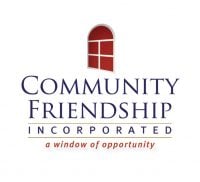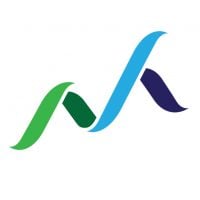Georgia Therapy Associates
Drug Rehab Center in Atlanta, Georgia
- Opioid Addiction
- Dual Diagnosis
- Drug Addiction
- Alcoholism
Georgia Therapy Associates is a licensed and accredited outpatient addiction treatment facility in Atlanta that provides evidence-based treatment, including cognitive-behavioral therapy and the 12-Steps, as well as services for dual diagnosis and mental illness, and has been awarded for their outstanding addiction treatment services.
About Georgia Therapy Associates in Georgia
Georgia Therapy Associates in Atlanta, Georgia is a comprehensive outpatient addiction treatment facility. Established in 1985, their services have evolved from straightforward substance abuse counseling to incorporating evidence-based practices, including cognitive-behavioral therapy, to help individuals move beyond their addiction to lead successful lives. In addition to providing addiction treatment services, the facility also provides services for dual diagnosis and mental illness.
At Georgia Therapy Associates, their compassionate and knowledgeable staff provides individuals with a comprehensive approach to Alcohol and Drug Abuse Counseling. This includes an individualized treatment plan, consisting of individual and group therapy, with a focus on the 12-Steps of Alcoholics Anonymous to help you rebuild your life. Their counselors also provide extensive family counseling services to help the individuals and their families understand the complexities of addiction, and how to best help the individual.
Georgia Therapy Associates is fully licensed, accredited, and certified by the Georgia Department of Public Health, as well as being accredited by The Joint Commission, indicating that they meet their highest standards for quality of care. Additionally, they are committed to their community, providing a full range of addiction-related services to clients throughout the Atlanta area. They have also been awarded the Mental Health America of Georgia’s 2017 Quality Awards for Outstanding Addiction Treatment Services, reflecting the quality of care they provide to their clients.
Genders
Ages
Modality
Additional
Conditions and Issues Treated
Opioid addiction has become a significant health problem in the United States. In 2015, there were 91 opioid overdose-related deaths per day, with a substantial increase in mortality rate in 2014.
When opioid addiction has reached a point where a person’s life becomes unmanageable, treatment options are available to help them get sober. Treatment that includes medical care with medications and counseling can help a user transition into sobriety.
Levels of Care Offered
This center offers a variety of custom treatment tailored to individual recovery. Currently available are Aftercare Support, Drug Rehab, Outpatient, with additional therapies available as listed below.
Outpatient treatment is often used for drug addicts in drug rehab. Outpatient treatment consists of counseling and therapy sessions. This form of treatment is also called ‘day-treatment’. The outpatient treatment process begins with the addict’s initial detox period, lasting about ten days.
Outpatient treatment is used for those who are at moderate risk for ‘slipping back’ into the addiction, for those who:
- Are not currently experiencing any side effects from withdrawal and can handle social pressure
- Can handle stressors that might trigger relapse
- Have a stable living environment or have moved out of their previous environment, which was not conducive to being sober
- Have a support system that allows them to go to a facility a few times a week while still keeping their current responsibilities
- Have no legal obligations, being either on parole or probation, that require them to seek treatment at a mandatory facility
- Are not currently experiencing any side effects from withdrawal and can handle social pressure
- Have a stable living environment or have moved out of their previous environment, which was not conducive to being sober
Completing a drug or alcohol rehab program is only the first step. Then comes aftercare support. These services include sober living accommodations, career counseling, and AA/NA programs for those struggling with sobriety or who want help maintaining it after initial rehab at an addiction facility.
They can last up to a year or more depending on what’s needed most urgently after the earlier stages are completed.
Therapies & Programs
Because no single treatment is effective for all addicts, the goal of treatment and therapy should be to figure out what works best for each individual. Tolerance and withdrawal levels differ from person to person, affecting the treatment intensity required. Addiction treatment should aim to help addicts develop healthy coping mechanisms for dealing with their addiction and its underlying causes.
Couples therapy works with clients and significant others in a professional capacity to improve relationship dynamics. This can be helpful for addicts who are trying to marry the idea of recovery into their work, family, social lives – any aspect that has to do with relationships. Through counseling sessions, addicts will have an opportunity to talk about their addiction with professional partners.
Family therapy is beneficial for people who are in addiction treatment services because it offers addicts the opportunity to work with their family members to better understand what led them to make choices that contributed to their addiction.
This type of therapy helps family members reach a deeper understanding of how they can best support their loved one during recovery. It also helps the addict better understand their own motivations and triggers that led them to turn to substance abuse.
Family therapy can help addicts in the following ways:
- Assists family members in processing difficult feelings so they don’t blame or resent recovering addicts
- Assists family members in understanding how addiction has impacted the addict and everyone who is involved with them
- Allows the addict to take responsibility for their actions, while encouraging improved communication skills
- Helps family members understand how to best support an individual in recovery so addicts don’t relapse again.
Group therapy can help build a stronger support system and give addicts in Atlanta, GA insight into their addiction that they gain through shared conversations. Group therapy occurs in a controlled group environment, exclusive of one on one meetings. This makes it safer for patients to feel comfortable sharing the struggles they’re going through and gaining perspective.
Payment Options Accepted
For specific insurance or payment methods please contact us.
Additional Details
Specifics, location, and helpful extra information.
Atlanta, Georgia 30311 Phone Number(404) 349-6655 Meta DetailsUpdated November 25, 2023
Staff Verified
Georgia Therapy Associates Patient Reviews
There are no reviews yet. Be the first one to write one.
Atlanta, Georgia Addiction Information
Prescription opioid use has caused a large increase in the total amount of overdoses in Georgia. Almost 12% of the Georgia population uses illicit drugs each year, and slightly over 3.5% also abuses alcohol at the same time. This does not include those who binge-drink at least once a month, which includes 20% of all Georgians.
Addiction statistics for 2019 show that about 62% of people died from drug overdoses in Atlanta. Opioids were involved in 59.5% of those deaths. The community is plagued by the illegal drug trade, which contributes to crime and violence. In 2013, there were 9,570 admissions to substance abuse treatment programs in Atlanta. With patience and perseverance, you should be able to find the perfect treatment facility for your needs.
Treatment in Nearby Cities
- Alpharetta, GA (28.0 mi.)
- East Point, GA (2.8 mi.)
- Lyons, GA (162.5 mi.)
- Elberton, GA (96.8 mi.)
- Sparta, GA (91.6 mi.)
Centers near Georgia Therapy Associates



The facility name, logo and brand are the property and registered trademarks of Georgia Therapy Associates, and are being used for identification and informational purposes only. Use of these names, logos and brands shall not imply endorsement. RehabNow.org is not affiliated with or sponsored by Georgia Therapy Associates.

